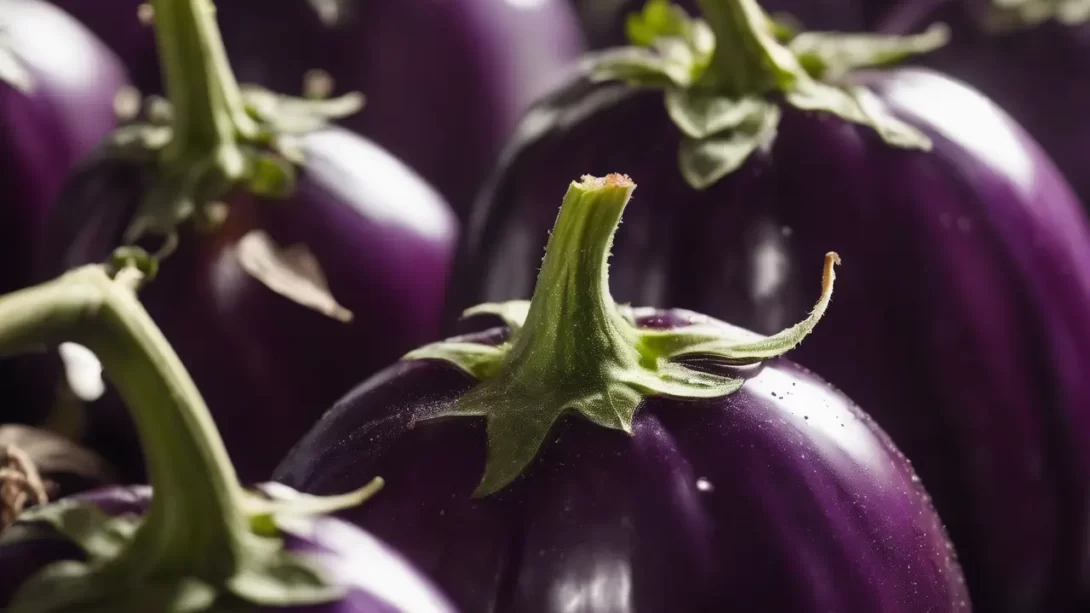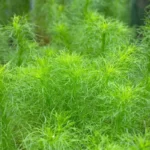Eggplants, known botanically as Solanum melongena, are a staple in kitchens worldwide. Originating in Asia, these glossy, deep purple vegetables are celebrated for their versatility in various culinary traditions. A common query among both gardeners and cooks is whether eggplants contain seeds. This article delves into the presence and characteristics of seeds in eggplants, providing useful insights for anyone keen on understanding this beloved vegetable better.
Anatomy of an Eggplant
The eggplant belongs to the nightshade family, which includes tomatoes and potatoes. Structurally, it is a berry with a meaty texture, known for its large, teardrop-shaped form. Seeds are nestled within the spongy flesh of the eggplant. Typically, these seeds are small, soft, and edible, blending seamlessly into the fruit’s flesh. Understanding the anatomy of an eggplant, especially its seed-bearing aspect, is crucial for both cultivation and culinary use.
Eggplant Seeds
Eggplant seeds are small, flat, and generally bitter to taste. They are a natural part of the fruit’s development, playing a vital role in the reproductive cycle of the plant. Each seed has the potential to grow into a new eggplant plant, given the right conditions. Interestingly, the number and prominence of seeds in an eggplant can vary based on several factors, including the variety of the eggplant and its maturity at harvest. Younger eggplants tend to have fewer and less noticeable seeds.
Varieties of Eggplants and Seed Content
Eggplants come in an array of sizes, shapes, and colors, ranging from the classic large, purple varieties to small, white, and even striped types. The common large purple variety, often seen in supermarkets, typically contains a moderate number of seeds. In contrast, smaller varieties like the Thai green eggplant are known for their higher seed content. The amount and visibility of seeds also depend on the specific cultivar, with some breeds being selectively grown to minimize seed quantity.
Culinary Implications of Eggplant Seeds
In the culinary world, the presence of seeds in eggplants is a significant consideration. Seeds can impact the texture and flavor of the dish. While the seeds are edible, they can sometimes impart a slightly bitter taste, more noticeable in older or overripe eggplants. For a smoother texture and milder flavor, chefs often choose younger, less-seeded eggplants. Some cooking techniques, like salting and draining eggplants, can reduce the bitterness associated with seeds.
Eggplants and Seedlessness
The quest for seedless fruits has led to the development of hybrid eggplant varieties with minimal to no seeds. These varieties are particularly favored in culinary applications where a smoother texture is desired. However, seedless or low-seed eggplants often require more specific growing conditions and can be more susceptible to certain pests and diseases. For home gardeners, growing these varieties can be a bit more challenging but rewarding for those seeking a milder, less bitter eggplant.
Harvesting and Using Eggplant Seeds
For gardeners interested in propagating their eggplants, harvesting seeds can be a practical endeavor. To harvest viable seeds, allow an eggplant to ripen fully on the plant until it reaches a dull color and spongy texture. Cut open the overripe eggplant, scoop out the seeds, and rinse them thoroughly to remove any clinging flesh. These seeds should be dried and stored in a cool, dry place for future planting. Beyond gardening, eggplant seeds can also be used in culinary experiments, though they are not as commonly utilized as the flesh of the fruit.
Conclusion
Eggplants do indeed contain seeds, and these seeds play a crucial role in the plant’s life cycle and cultivation. The number and prominence of seeds in eggplants vary depending on the variety and maturity of the fruit. While seeds can affect the culinary qualities of eggplants, such as texture and taste, understanding how to manage and use them can enhance both cooking and gardening experiences. Whether you are a home gardener or a culinary enthusiast, appreciating the role of seeds in eggplants opens up new avenues for exploration and enjoyment of this versatile vegetable.



